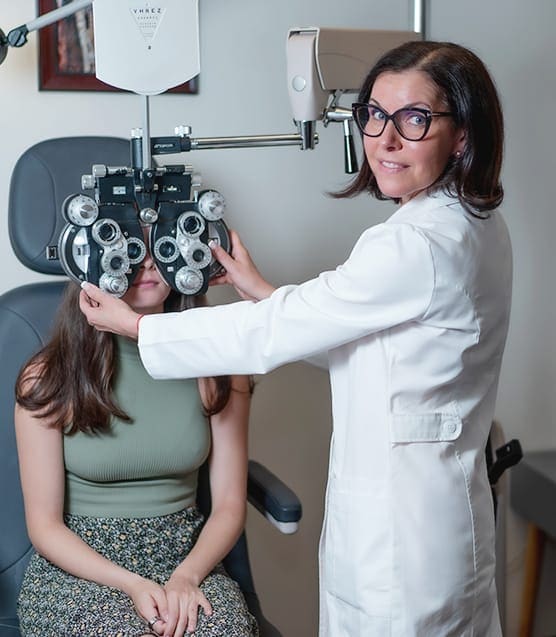

How healthy are your eyes? Even if you have clear vision, you may still have a risk of developing an eye condition or disease at some point in your life.
Regular eye exams allow us to look for issues early and provide opportunities to manage your eye health and preserve your vision.Take a deeper look at your eye care needs. Visit the team at Cohen’s Fashion Optical today.

Regular eye exams for adults can help detect and manage vision changes and prevent serious eye health problems.
Depending on your age, health, and family history, you should have a routine eye exam at least every year. Even if you have good vision, you should still have regular eye exams to catch potential eye concerns.


We use a range of eye care technologies to support our comprehensive eye exams.
Get help detecting diseases earlier, find more options to support your eye health, and work toward clearer sight with our latest treatments.

We can provide nutritional supplements designed to help manage the risk of issues like glaucoma or macular degeneration. Some of these include:
We can also provide dietary and lifestyle coaching to further preserve your eye health by recommending vitamins, minerals, and nutrients you might need.

Glaucoma is a group of eye diseases that affects the optic nerve, which can lead to significant vision loss. It is caused by increased intraocular pressure within the eye, which can permanently damage the optic nerve over time.
Early detection of glaucoma is essential, as regular monitoring and treatment can help preserve vision and prevent further damage.
Cataracts are an eye condition in which the eye’s lens becomes clouded or opaque, limiting vision and causing blurred or distorted vision.
Cataracts can occur due to age, trauma, exposure to extreme temperatures and chemicals, as well as other factors.
Age-related macular degeneration (AMD) is an eye condition that affects the retina, leading to progressive vision loss in the central field of vision.
It’s a degenerative disease common in older adults that can cause blurriness, distorted or discolored vision, and difficulty recognizing faces.
Diabetic eye diseases can include diabetic retinopathy, where the blood vessels in the retina become damaged and leak fluid; macular edema, where the retina swells; and cataracts, where the lens becomes cloudy or hazy.
People with diabetes are also more prone to glaucoma, which affects eye pressure and can lead to optic nerve damage.





